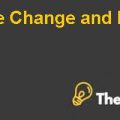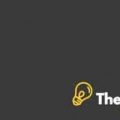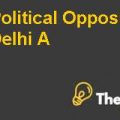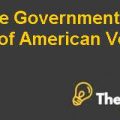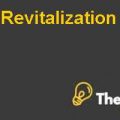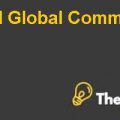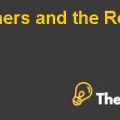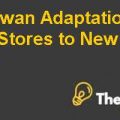Unilever in Brazil case Case Study Help
Introduction
London and the Netherlands are the corporate headquarters of Unilever, a USD 56 billion multinational. The company, which began operating in 1929, is a pioneer in the development of home care goods. Unilever introduced the first detergent powder, OMO, in Brazil and has solidified its position as a market leader in the detergent industry.
The detergent segment is Unilever's cash cow in Brazil, fuelling expansion in the food and personal care segments. Via its three brands, OMO, Minerva, and Camperio, Unilever presently holds an 81% market share in the detergent category. Through its Minerva brand, the company is a well-known player in the laundry soap market, holding a 19.1% market share.
The Brazilian division of the multinational consumer products firm Unilever is called Unilever Brazil. One of the biggest marketplaces in Latin America, Brazil, is where Unilever Brazil conducts business. It is in charge of producing and distributing a variety of goods, such as food, personal care, and home care items. Omo, Dove, Hellmann's, Knorr, Axe, and Rexona are some of Unilever's best-known brands in Brazil. Unilever Brazil is dedicated to ethical and sustainable business practises and has put in place a number of programmes in the areas of diversity and inclusion, social responsibility, and environmental sustainability.
The major objective of Unilever as a business is to foster sustainable growth by enhancing people's lives all over the world through its operations and products, while minimising its environmental impact. Unilever is dedicated to making a difference through its products, operations, and relationships because it believes that the health of the earth and the welfare of society are essential to its success as a company.
Problem Statement
Laercio Cardoso should make a head on decision whether the firm should divert towards the changing price strategy to fit the low-income consumers or should they extend their existing brands and what should be there current marketing, pricing strategies etc. this decision needs to be taken on an immediate basis and thus must be followed immediately.
Situational Analysis
It is possible to better appreciate the competitive factors at work in the Brazilian detergent business by splitting competition between the "Laundry Soap" and "Detergent Powder" markets in the North-eastern part of the country. Although being widely considered as Unilever's biggest competitor in the home care industry, P&G only poses a threat to the NE Brazil market for detergent powder because it doesn't produce laundry soap. Unilever's cheapest brand for detergent powders, "Campeiro," is affordable for consumers on a budget; in contrast, P&G and the Brazilian business ASA both sell their cost-effective brands, "Pop" and "Invicto," for the same wholesale price as Campeiro.
Three years earlier than expected, Unilever Brazil declared in 2021 that it had surpassed its goal of obtaining 100% of its electricity from renewable sources. The business also unveiled a number of fresh sustainability programmes, such as a plan to cut down on plastic waste by providing refill stations for home care items and a collaboration with a nearby start-up to create a compostable packaging option.In terms of its financial performance, Unilever reported substantial development in emerging markets like Brazil in its 2021 full-year results, which showed rise in underlying sales and net profit. Additionally, Unilever Brazil has continued to grow its line of goods by introducing fresh offerings under its food, personal care, and home care brands.
Cannibalization, Tipping points and Breakeven
When referring to Unilever Brazil, the term "cannibalization" describes a scenario in which sales of a new product that the business has launched compete with and erode sales from a currently offered product. When a new product draws customers who would have otherwise bought the existing product and is identical to it in terms of features or price, this is known as cannibalization. Due to this, sales and revenue for the current product may decline, and the company's overall revenue growth may be constrained. The formula for calculation is as follows:
Cannibalization (%) = (Sales loss from existing product / Total sales of existing product) x 100 (see Exhibit 1)
For Unilever Brazil, a tipping point is a crucial time or occurrence that causes a significant shift in the market, sector, or firm's performance. It could be a change for the better or worse that spurs or slows the company's expansion. We must make it clear that a tipping point is a crucial moment that is frequently challenging to gauge or foresee. Several things, such as market conditions, consumer behaviour, competition, and outside events, might have an impact on it.
When all of a company's revenues and all of its expenses are equal, that moment is known as the breakeven point for Unilever Brazil. The business is neither making a profit nor suffering a loss at this time. It is a crucial measure that aids businesses in determining the minimal amount of sales necessary to cover their expenses and generate a profit. Unilever Brazil must ascertain its fixed expenses and variable costs in order to establish the breakeven threshold. Costs like as raw materials, packing, and shipping are examples of expenses whose amounts depend on the volume of production or sales................
Unilever in Brazil case Case Study Help
This is just a sample partial case solution. Please place the order on the website to order your own originally done case solution.

